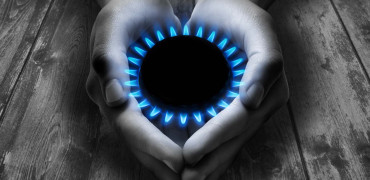With scarcely a moment’s breathing space, we have jumped from a fast-fading Covid crisis, into something which potentially poses an even greater risk to Europe, particularly its Eastern fringes.
Regardless of the likely immediate outcomes of what Putin is doing in Ukraine, the uncertainty created is almost impossible to calculate, and the long-term effects could be huge, not least for the UK economy.
It’s also almost impossible to contemplate another few years of crisis on our doorsteps, and in a much more visceral way than Covid represented for many of us.
However, we are still somewhat insulated from the direct horrors of the war, with our information filtered through rolling news.
One overwhelming certainty is that the planet is warming, and buildings are one of the biggest causes
Global anxiety
Logistics and prices are what we are confronted with, seemingly a very innocuous problem compared with what Ukraine is going through, but something that will aggravate the existing problems of the UK construction industry, chiefly on supplies.
Long-term planning is once more going to be something of a pipe dream for UK firms.
It’s a certainty, fortunately, that only 4% of the UK’s gas comes from Russia, so even if Putin turned the taps off, we wouldn’t be crippled.
However, the price of gas has already gone through the roof in recent months, and the April increase already baked-in to customers’ gas and electricity bills is only going to be compounded by global anxiety around what is happening in Ukraine.
Gas prices
It is going to be costly and difficult to replace any lost Russian piped gas with liquified natural gas (LNG), which needs to be ‘regassed’ once it is shipped in liquid form.
Obviously, Russia won’t want to lose the income (which they also make from some LNG exports to the UK), but they might wish to attempt to sabotage Western energy markets more.
Another certainty, though not a reassuring one, is the unpleasant paradox that the US’ sanctions on Russia, having so far swerved energy somewhat, actually led to a drop in gas prices with the markets feeling less panicked.
So we face the uncomfortable reality that in order to hit Russia with meaningful sanctions, we may need to accept some further shocks to gas prices.
Unilateral actions
With the price of oil remaining so high, Biden is going to find it difficult to really ‘weaponise’ sanctions on Putin’s gas supplies, but this pill may have to be swallowed.
European gas prices have soared from 16 Euros a barrel a year ago, to a colossal €180 just before Christmas.
This problem isn’t going to be eased soon, and it’s going to need more than the gas market taking its own unilateral actions to boycott Russian supplies.
Russia is increasingly being financially isolated, but Putin has built up a large amount of reserves which should enable him to tolerate sanctions up to a point.
Europe buys more than 70% of Russia’s natural gas, so this could be where it could really make the difference with sanctions, but again, this will hit European consumers who are already bracing for a challenging few months.
It will come down to political will, but if it looks like Russia is ‘winning’ in Ukraine, politicians’ scripts are going to be written for them by events.
Legal certainties
In the UK, we are still heading towards 2050 zero carbon, something which huge uplifts in energy prices will only sharpen our strategic focus to find solutions for ending gas boilers – in law from 2025.
And from June this year, the interim Future Homes Standard means that new homes will be legally required to have 31% lower carbon emissions.
We don’t have any certainty about where Europe is heading politically, but these legal changes are certainties (or as close as we can get), so that’s where we should be focusing our energies.
And the other overwhelming certainty is that the planet is warming, and buildings are one of the biggest causes.
How can we make it affordable to build, fit out and sell low carbon homes, when this is what we as a society all need?
James Parker is editor of Architects DataFile




